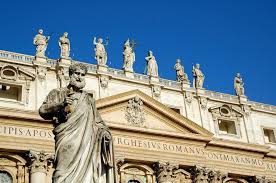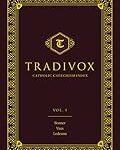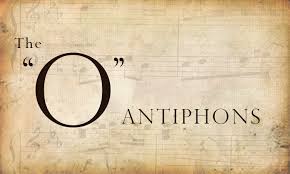I don’t discipline my brother’s children; my role is avuncular. I may exhort them to be good, and demur when they do bad; I certainly pray for them. But I leave the ‘vis et metu’, the ‘force and fear’ – as Saint Thomas says all law needs, even the ‘laws’ of the household – to the paternal vocation of my brother, complemented by the maternal role of his wife, who can, and must, mete out the discipline as required. Fathers should be loved, but they should also, at least to some small, potential extent, be feared. A father should also not fear to discipline his children, as appropriate, flowing from love, and for the sake of love. The fear of the Lord is the beginning of wisdom…
It was this blurring of roles that niggled me about Archbishop Salvatore Cordelione’s avuncular campaign of ‘roses and rosaries’ for the ‘conversion’ of his spiritual daughter – not his spiritual niece – Nancy Pelosi. I was going to write about it, and am heartened to see that Maureen Mullarkey has beaten me to the punch bowl.
Saint Thomas says that law works in two ways: It teaches us the right thing to do. And, for those still not amenable, it forces us to do so. These are the pedagogical and coercive dimensions of law. If law just teaches, it is but good advice. If law just forces, it is violence. It must do both, as an ordinance of reason for the common good.
Mrs. Pelosi has refused to listen to the teaching of the Church, that Catholics cannot in good conscience facilitate the murder of unborn children, but must do all in their power to stop such heinous crimes against life. Hence, she needs the coercive dimension. Sure, we can and should pray, even fast and do penance, for her, and urge others to do so. I’m all for the rosary, but not so sure about the roses, but perhaps they will help. But her bishop needs to do more. He cannot act like one of her siblings, or her uncle. Rather, it is his role – and his alone – to discipline, suaviter, yet fortiter, leading her back to the right path. If she refuses – as she has – like any good father who seeks the good of his children, she must be banned from the common table, sent away, and apart, to think and reflect.
There is a reason the prodigal son lived his dissolute and immoral life far off from his father’s house. It was the exile itself – the effect of his own sin – which brought him back to his senses, realizing what he had had, and had lost. He was only welcomed back once he repented. Do you think the father would have tolerated the son’s evil while under his own roof, and sharing his meals? What are we then to say of Pelosi and Biden and Trudeau, aiding, abetting, facilitating and funding the murder and mutilation of many of the father’s other children, all while sharing the Body and Blood of Christ, using the Father’s very name to justify such heinous participation in evil?
The problem here is not so much sin, with which we all are struggling, but contumaciousness and stubbornness in sin, or, in biblical terms, hardness of heart. Yes, Christ would ‘eat and drink with sinners’, but only those who were open to and seeking repentance, mercy and truth. To those Pharisees who had closed their hearts, who put their morality before that of God, He did not mince His words: Brood of vipers, whitewashed sepulchres, the blind leading the blind.
And what are we to say of His warning that what you do to the least of these little ones, you do unto me?
In a radio address in 1946, in the wake of the most dreadful war of human history, Pius XII lamented that the greatest sin of the twentieth century was the loss of the sense of sin, without which sense no repentance is possible; the only other path is perdition.
The refusal of Communion to pro-abortion politicians (and other notorious and unrepentant public sinners) is simply pointing out to them a situation that already exists, that they are ‘out of communion’ with the doxa and praxis of the Church to which they profess to belong. Such measures are required by the decrees and laws of the Church – reiterated by Pope Benedict XVI in 2004 (in a memorandum deliberately smothered by then-cardinal Theodore McCarrick). Here are the Pope’s own words, which still bind, regardless of the personal opinions of prevaricating prelates:
Regarding the grave sin of abortion or euthanasia, when a person’s formal cooperation becomes manifest (understood, in the case of a Catholic politician, as his consistently campaigning and voting for permissive abortion and euthanasia laws), his Pastor should meet with him, instructing him about the Church’s teaching, informing him that he is not to present himself for Holy Communion until he brings to an end the objective situation of sin, and warning him that he will otherwise be denied the Eucharist.
When “these precautionary measures have not had their effect or in which they were not possible,” and the person in question, with obstinate persistence, still presents himself to receive the Holy Eucharist, “the minister of Holy Communion must refuse to distribute it” (cf. Pontifical Council for Legislative Texts Declaration “Holy Communion and Divorced, Civilly Remarried Catholics” [2002], nos. 3-4). This decision, properly speaking, is not a sanction or a penalty. Nor is the minister of Holy Communion passing judgment on the person’s subjective guilt, but rather is reacting to the person’s public unworthiness to receive Holy Communion due to an objective situation of sin. (par 5 and 6)
As the Pope alludes, this is an act of mercy and charity, and whether Nancy Pelosi would see it as such, or even care, nor of the political turmoil that may ensue, are all beside the point. As Pope Saint Pius V thought back in 1570 when he excommunicated Queen Elizabeth, which created its own firestorm, at least so doing would offer her (and others) the opportunity to ‘care’, at least for the fate of her own soul, and so repent, turn back to God, His Church, and His commandments.
We must all do our duty, and let God take care of the rest. And hope – even against hope.
Estote viri!
Estote patres!
Estote sancti!











